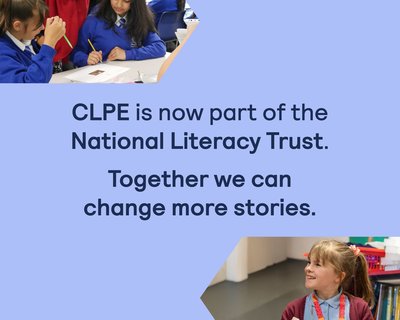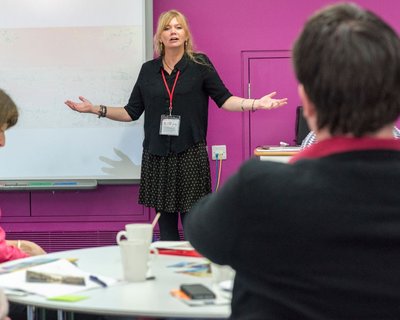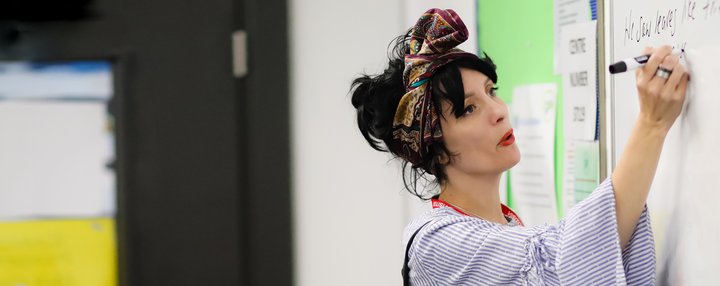Professional Development training
Develop your skills through innovative best practice and the latest research with our training courses and events, designed to help you take action to improve literacy outcomes.
-
CPD and workshops to help primary teachers and leaders develop provision and improve literacy outcomes.Learn more about Primary training.
-
CPD and workshops for leaders, teachers and subject specialists across the curriculum to develop a whole-school approach to literacy.Learn more about Secondary CPD courses.
CLPE becomes part of the National Literacy Trust
We are delighted to share that we have joined forces with the Centre for Literacy in Primary Education (CLPE). By combining resources and expertise, we will turbo-charge our combined impact on literacy education.

Our conferences
Join us at our conferences to explore predominant issues in literacy education, hear expert insights in to leading-edge research, and discover examples of best practice.
-
Focusing on language acquisition in the first 1001 days, our annual conference is a cross-sector summit of thought leadership and best practice.Learn more about Early Words Matter conference.
-
Our primary conference celebrates best practice and explores the issues most significant to primary practitioners.Learn more about Primary conference.
-
Our secondary conference celebrates best practice and explores the issues most significant to secondary practitioners.Learn more about Secondary conference.
"There is no significant literacy development in the classroom without substantial professional development in the staffroom."
Stephen Tierney (2020) Read All About It: Why reading is key to GCSE success, GL Assessment
Why choose us for CPD?
Our CPD is delivered flexibly, availalble both as scheduled live online events, and as group or whole-school training on request, such as for INSET days.
-
Aligned to professional standards
Our courses are fully aligned with the DfE standards for teachers' professional development.
-
Evidence-based strategies
Our training offers teachers and literacy leaders a chance to immerse themselves in enquiry, questioning and experimentation as well as providing innovative strategies and practical ideas to support literacy.
-
Targeting disadvantage
Guidance from the Education Endowment Foundation (EEF) shows that professional development should be a priority for pupil-premium spending - our courses focus on areas that most often create barriers for disadvantaged students.
"Thanks for an informative day - I'm going away with inspiration for my own practice and whole-school CPD."
Upcoming training and conferences
Discover dates and booking information for CPD courses and professional development events coming up soon.







